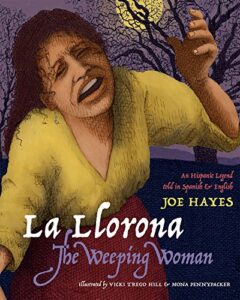The eve of the conquest of Mexico -Tenochtitlan by Hernan Cortes and his Spanish army was plagued by omens that Miguel Leon–Portilla enumerates in his book, “Broken Spears: The Aztec Account of the Conquest of Mexico”.
Based on codices as well as from memories of the period, Portilla describes a woman who the natives called Cihuacoatl (the serpent woman), who wandered among the temples of the great ‘Mexica’ capital announcing a tragedy:
“O-h-h, my children, the time for our departure draws near. O-h-h-h, my children! Where shall I take you?”
However, it was during the colonial days when the legend of the weeping woman gained the necessary strength to filter into Mexican folklore, and although there are innumerable versions as to the origin of this macabre and heartrending cry, the most popular one is told in detail herein:
Every night at eleven, when the curfew sounded in the capital of New Spain, the inhabitants would shut themselves in their houses of mud and stone. The streets were left deserted. It was then that the darkness and the silence were torn by the long and distressing wails of a woman. “Oh, my children”, she repeated monotonously, causing even the bravest hearts to shudder.
Those who dared to look out from their windows managed to see the silhouette of a woman dressed in white, floating above the street’s stone pavement; she would stop at the city’s Main Square. Later, the ghostly figure would head in the direction of Texcoco Lake, where she’d disappear with the first rays of the dawn.
But, just who was this woman whose face could not be discerned? Why did she cry so pitifully? According to the story, there was once a beautiful native woman who fell deeply in love with a Spanish gentleman. The gentleman felt a great passion for her, but relations between a nobleman and an Indian woman were positively regarded with disapproval, so he maintained his romance with her in secret. Three children were born to the mother, who adored and tirelessly cared for them.



